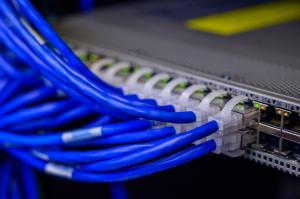Enterprise servers to benefit from SmartNICs after VMware move
 Enterprise servers have begun to move into SmartNICs and VMware, with Nvidia and AMD announcing that their data processing units (DPUs) are now supported by VMware’s hypervisor. Nvidia and AMD both announced the news at last month’s VMware Explore conference, with Intel expected to follow later on this year.
Enterprise servers have begun to move into SmartNICs and VMware, with Nvidia and AMD announcing that their data processing units (DPUs) are now supported by VMware’s hypervisor. Nvidia and AMD both announced the news at last month’s VMware Explore conference, with Intel expected to follow later on this year.
Traditionally, SmartNICs have been the preserve of hyperscale cloud providers, such as Azure and AWS, with a lack of software compatibility meaning the technology was uncommon in large enterprise environments. However, Nvidia and AMD have announced that their respective DPUs, BlueField and Pensando, now have support to run the vSphere 8 virtualization stack.
The announcements follow VMWare’s Project Monterey, an undertaking of more than two years which sought to bring the capabilities of SmartNICs to mainstream enterprise servers. During this time, Nvidia and AMD have each embarked on acquisition drives, buying network vendors to provide them with an edge in the emerging SmartNIC market.
Extending VSphere support to larger enterprise servers will enable VMware customers to unlock efficiencies typically associated with the cloud, while remaining on their preferred virtualization stack on their datacenters. Nvidia’s SVP of Networking Kevin Deierling says that an organisation with 1000 node servers would see a saving of aroud $1.8m over three years - around $600 per server per year.
AMD has said that it will offer its 400Gbit/sec-capable Pensando DPUs on OEMs including HPE, Dell and Lenovo over the coming weeks, while Nvidia’s 200Gbit/sec BlueField-2 DPUs will follow on Dell PowerEdge systems from November.
Nvidia and AMD are the first companies in what is expected to be an ongoing trend, with Intel, which was involved in Project Monterey from the beginning, having developed several FPGA and ASIC-based SmartNICs. Intel’s Mount Evans and Oak Springs Canyon accelerators are reportedly set to ship later in 2022.
Finally, Marvell is also seeking to enter the DPU market, having last year announced its Octeon 10 DPUs, which have an integrated terabit switch enabling high-speed network offload.







